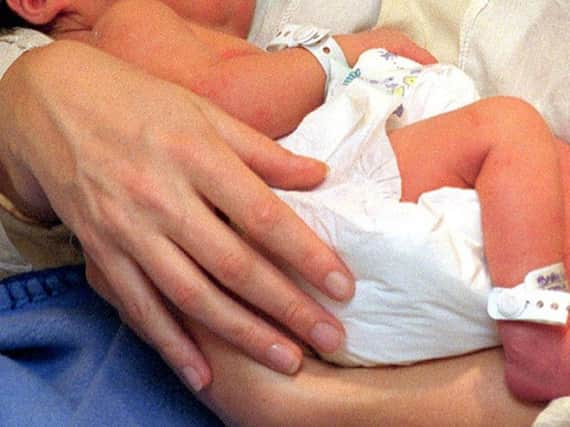Yorkshire study reveals new screening system for sepsis in newborns to be less effective


According to the study, conducted by scientists from the University of York, Leeds Teaching Hospitals Trust and Bradford Teaching Hospitals, the new system is 30 per cent less successful.
Early onset sepsis (EOS) is difficult to diagnose in babies and can be confused with symptoms of a less serious condition.
Advertisement
Hide AdAdvertisement
Hide AdThe current approach in the UK is to treat early and quickly, giving antibiotics as a precaution to a very large number of babies who may not have an infection.
The method is expensive and neonatal antibiotics have been linked in childhood to asthma, allergy and auto immune disease.
The NHS has been looking for an alternative.
But a new approach to sepsis diagnosis in babies called the Kaiser Permanente (KP) electronic calculator developed in the US risks missing cases of the disease, researchers found.
It was less effective than basing diagnosis on the clinical risk factors defined by the National Institute for Health and Care Excellence (NICE).
Advertisement
Hide AdAdvertisement
Hide AdDr Bob Phillips, from the Centre for Reviews and Dissemination at the University of York, said: "Analysis of the eleven relevant studies showed 75 babies had developed sepsis - between 20 per cent and 30 per cent of those would have been 'missed' if the new calculator had been used in comparison to the current methods used by NICE.
"This was even more likely to occur if the mothers had chorioamnionitis (placental inflammation) which placed the baby at a higher risk of infection."
Dr Phillips said the KP calculator was risky in a healthcare system like the NHS where mothers and babies are discharged as little as six hours after birth.
"If the calculator were to be put in place in a healthcare system with rapid discharge, such as is the case in the UK currently, this may lead to babies presenting with severe infections late and having worse outcomes," he said.
Advertisement
Hide AdAdvertisement
Hide Ad"In the USA, mothers and their newborns spend longer periods of time in hospital where they are being observed by doctors who are more likely to pick up the symptoms."
The research team want to see further evaluation if the KP calculator is ever rolled out across the NHS.